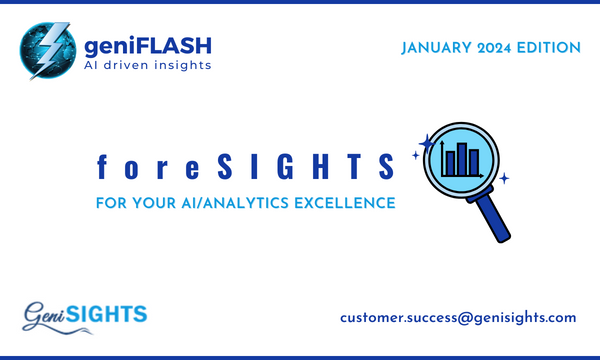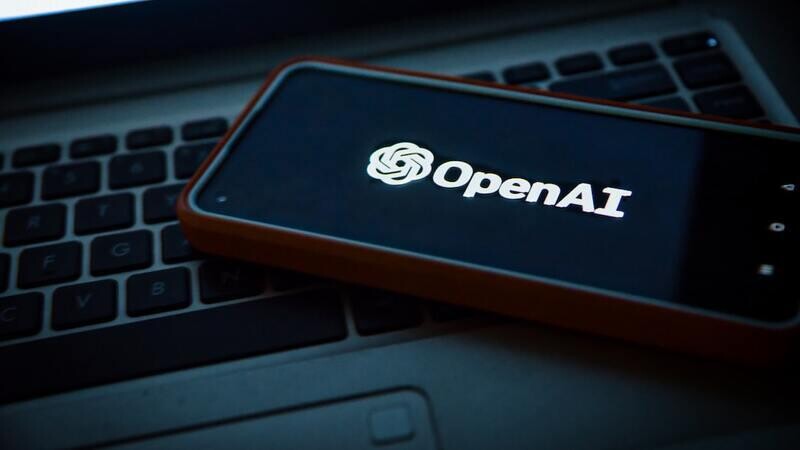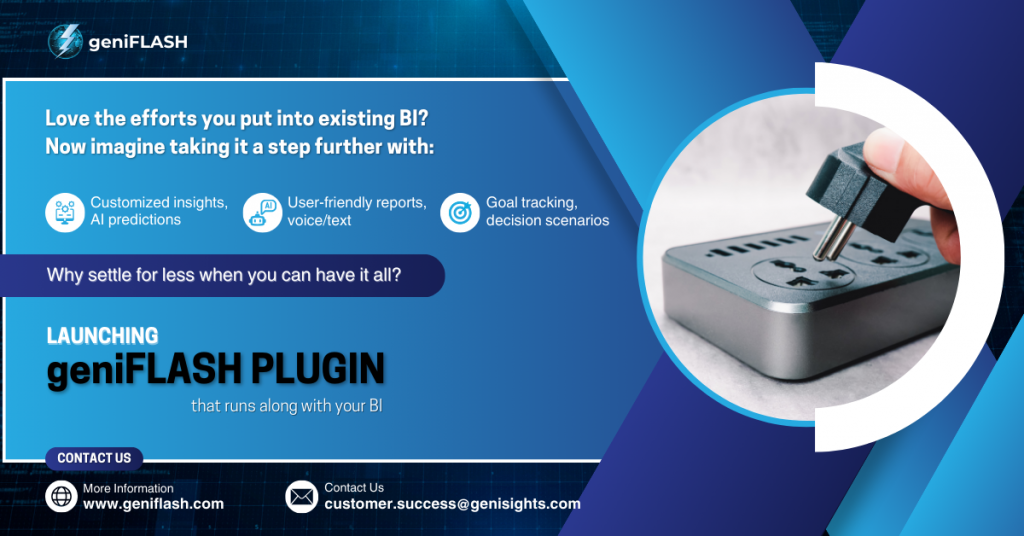
Dear Valued Readers,
Happy New Year! Welcome to the first edition of foreSIGHTS newsletter for 2024. We are thrilled to embark on another year of exploration and discovery with you.
As we journey into 2024, our commitment remains unwavering. foreSIGHTS is your dedicated source for staying ahead of cutting-edge developments in AI and business intelligence. Thank you for being a part of our community.
Haven’t subscribed yet? Click “Subscribe” to stay in the loop and share your content suggestions at customer.success@genisights.com.
In this edition, we would like to highlight the following:
- OpenAI Admits Challenge: Avoiding Copyrighted Data in AI Training Deemed ‘Impossible’
- OpenAI’s custom GPT Store is now open for business
- Meta ramps up AI efforts by building chip arsenal, consolidating teams
- geniSIGHTS Update: Introducing the geniFLASH Plugin
- Pongal Celebration at geniSIGHTS
Best Regards,
Team geniSIGHTS
OpenAI Admits Challenge: Avoiding Copyrighted Data in AI Training Deemed ‘Impossible’

OpenAI asserted to a UK parliamentary committee that developing leading AI systems, like ChatGPT, without extensive copyrighted data is “impossible.” The company argues adhering to copyright law in AI training is impractical due to broad requirements.
According to OpenAI’s written testimony, the combination of expansive copyright laws and protected online content would restrict access to “virtually every sort of human expression” for training data. OpenAI argues that limiting training data to public domain content from over a century ago would not meet today’s needs.
OpenAI acknowledged the possibility of partnerships and compensation schemes with publishers but did not signal intent to limit harvesting of online data, leading to lawsuits, including from media outlets like The New York Times, alleging copyright breaches.
Despite legal challenges, OpenAI is reluctant to overhaul data collection and training processes, citing the “impossible” constraints that self-imposed copyright limits would impose. Instead, the company aims to rely on broad interpretations of fair use allowances to legally use vast amounts of copyrighted data.
As advanced AI mimics human expression, legal experts anticipate courtroom battles over infringement claims against systems designed to absorb substantial volumes of protected text, media, and creative output. Currently, OpenAI favors extensive copying over copyright maximalism to drive ongoing AI development.
OpenAI’s custom GPT Store is now open for business

OpenAI has finally launched the GPT Store, allowing users to share custom chatbots and expanding ChatGPT’s use cases. The platform, initially delayed from November to January, lets users publicly share their custom chatbots, limited to subscribers of OpenAI’s paid tiers.
Since the November announcement of the GPT Builder program, over 3 million bots (GPTs) have been created, with OpenAI planning to highlight useful GPTs weekly. A revenue sharing program for GPT creators based on user engagement will begin in Q1, with specific details pending.
Before the store’s opening, OpenAI implemented a new review system to ensure custom GPTs align with guidelines. The GPT Store is available to ChatGPT Plus and Enterprise users, as well as subscribers to the new Team tier for smaller teams.
ChatGPT Team, priced at $25 per user monthly (annually billed) or $30 per user monthly (monthly billing), provides access to GPT-4, DALL-E 3, OpenAI’s Advanced Data Analysis feature, and data control. OpenAI assures that data and conversations from ChatGPT Team will not be used to train any models.
Meta ramps up AI efforts by building chip arsenal, consolidating teams

Meta CEO Mark Zuckerberg plans to merge AI research with the generative AI team, aiming to integrate the technology into products.
Meta is expanding its infrastructure, targeting 350,000 Nvidia H100 GPUs by year-end, totaling about 600,000 GPUs with other suppliers. This makes Meta’s system one of the largest in the tech industry.
While confirming Nvidia, other GPU suppliers remain undisclosed, with plans to use AMD chips and reports of an internally designed GPU-like chip. Meta intensifies efforts to build computing capabilities, focusing on generative AI after years of research without significant integration into core products and AR/VR hardware.
geniSIGHTS Update: Introducing the geniFLASH Plugin

Remember our announcement last month about the upcoming geniFLASH plugin to augment your favorite BI tool?
The wait is finally over – it’s officially launched!
As we had shared earlier, this plugin takes your analytics to the next level with:
- Personalized Insights: Contextual recommendations tailored to individual user data/roles
- Simplified Experience: Conversational interface for digestible data bites
- Continuous Improvement: Tracking relevant KPIs to constantly inch closer to targets
While certain innovative features remain exclusive to our full enterprise solution, the plugin delivers a strong upgrade through personalization and simplicity.
Why settle for a one-size-fits-all BI experience? Our intelligent assistant delivers insights tailored just for you and your role – no more digging through irrelevant data!
Eager to experience the magic first-hand? Book https://lnkd.in/giHnzmDG a live demo today of how geniFLASH can transform your BI experience!
Pongal Celebration at office – IIM Research Park

Had a fantastic Pongal celebration at Aaum Research and Analytics Pvt Ltd, geniSIGHTS Pvt Ltd in IIT Madras Research Park (IITMRP)!
As we say in Tamil, ‘Thai Pirandhal Vazhi Pirakkum’ – Here’s to new roads of success and reaping the benefits of our hard work. Stay healthy, stay optimistic!